As I’ve discussed before, the terminology associated with alternative medicine is complex and inconsistent, so it makes discussing and debating the subject that much more challenging. Terms like “alternative,” “holistic,” “integrative,” “natural,” etc. are often used interchangeably, but they tend to have subtle distinctions in meaning or in the underlying ideology they represent, and their popularity varies over time.
Mostly for fun, but hopefully to generate at least a little insight into the use of such terms, I have been playing around with Google’s ngram viewer to track the use of common alternative medicine terms over time. This tool identifies the frequency of occurrence of words of phrases in the enormous collection of published books digitized by Google. While it is not a complete collection of everything ever published, since no such resource is likely even possible, it does include a large enough sample of books published in the last two centuries to provide a rough guide to the popularity of specific terms in published writing.
My understanding has long been that the terms used to label, and to market, alternative therapies have changed in response to ideological shifts and to changes in the perception of these practices. For example, I would guess that the earliest term would be “alternative,” which arose to suggest such therapies could be used in place of science-based medicine. When people proved unwilling to give up conventional medicine, the term “complementary and alternative” and ultimately just “complementary medicine” arose to suggest one could benefit by using both science-based and other therapies. This, however, carries the implication that alternative medicine is subsidiary or an afterthought to conventional treatment, which some CAM practitioners dislike. The most recent innovation, in my view, has been “integrative medicine,” a term which implies that alternative and science-based therapies are equally legitimate and that there is some advantage to using them together despite the lack of evidence for many specific CAM practices and for any real improvement in outcomes to mixing these with conventional medicine.
In general, the ngram view supports this understanding, though with some interesting twists. First, the term “alternative medicine” yields this result:
Clearly, the term came into use during the late 1970s and was used with markedly increasing frequency starting in the early 1990s. Interestingly, it appears to have declined in frequency beginning in the early 2000s, which I would not have expected. Of course, given the limitations of the ngram viewer, it is not clear if this is entirely a real change in the popularity of the term or simply an artefact of the database. However, looking at the results for other CAM terms might shed some light on this question. For example, here is the result for “complementary and alternative medicine:”
As expected, this term seems to have appeared later than “alternative medicine,” emerging in the mid 1990s. Unlike “alternative medicine,” this term does not yet appear to have peaked or started to decline in popularity.
Interestingly, my assumptions about the term “integrative medicine” appear to have been mistaken, as the usage of this term follows a pattern almost identical to that of “complementary and alternative medicine,” whereas I would have expected it to have arisen later.
Another popular term, “holistic medicine,” shows features of both the patterns seen with the previous terms:
This term appears to have shown up slightly before “alternative medicine” and reached its peak popularity earlier, though it was never nearly as popular as “alternative medicine.” However, this term too appears to have begun declining in use beginning in the early 2000s. One might hope this represents a decline in the popularity of these questionable concepts as well, but of course this data cannot really determine that.
The slightly more common term “natural medicine” shows pattern similar to that of “alternative medicine:”
Though this one has been around at a low level for longer than either “holistic medicine” or “alternative medicine,” it appeared to have a big jump in usage in the 1990s and to have had a drop in popularity since about 2000:
I also thought that checking the usage of the names for specific alternative therapies might help sort out whether the apparent patterns seen in the use of these more general terms are accurate, and the results suggest they may be. First, acupuncture:
This term takes off in frequency in the 1970s, likely stimulated by the writings of journalist James Reston, who wrote glowingly, and somewhat inaccurately, about the use of acupuncture following his surgical treatment for appendicitis in China. A second step up in usage seems to have occurred in the late 1990s, similar to that seen for most of the general terms examined above. Also similar to the patterns for these terms, the use of “acupuncture” in published writing seems to have declined since about 2000. The related term “traditional Chinese medicine” follows a very similar pattern:
Though the terms “chiropractic” and “homeopathy” appear somewhat earlier, these too show a marked increase in usage in the 1990s followed by a decline since 2000.
Once again, it is possible that the apparent decline in the appearance of these terms represents an artefact of the database, so to test this idea I also evaluated a few common terms from science-based medicine. These show marked increases in use associated with their introduction, but no apparent decline such as that seen for CAM terms.
So what does all of this tell us? Well, given the limitations in the underlying database, we cannot make any confident pronouncements. However, what these data suggest is that terms associated with alternative medicine as a general ideological concept, and with specific alternative therapies, have experienced a significant increase in frequency of appearance in published English in the last few decades, primarily in the 70s-90s. Interest in these approaches seems to have increased as a function of larger cultural trends, including the increase in cross-cultural communication and awareness, the counterculture movement, the rise of post-modernism, and so on. Arguably, there has also been a growing anti-science and anti-intellectual trend, at least in the U.S., over the same time period, which would likely increase the attractiveness of pseudoscientific approaches that question the meaning of specialized expertise and the privileging of scientific evidence over belief and personal experience that is an intrinsic part of science-based medicine.
I would like to see some glimmer of hope in the apparent decline in the use of these terms which has occurred for most of them since about 2000. The idea that the cultural pendulum may be swinging back towards science and reason and away from opinion-based and faith-based medicine is appealing, but these data alone are not sufficient to demonstrate such a shift is really happening. Nevertheless, for the sake of human and veterinary patients, I will continue to hope this is the case!

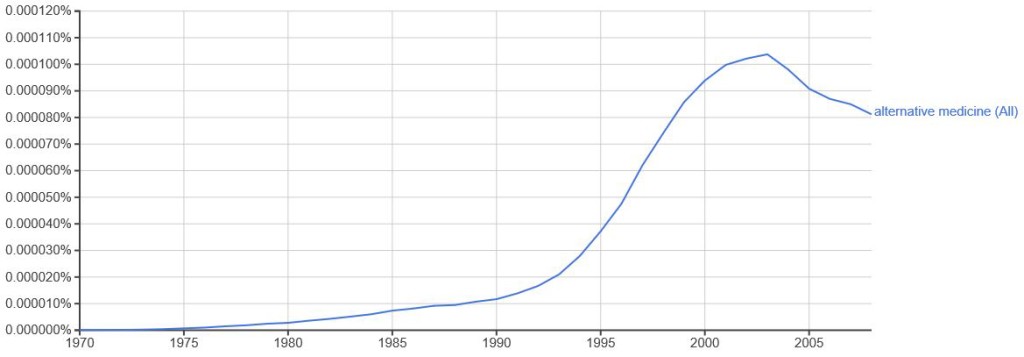

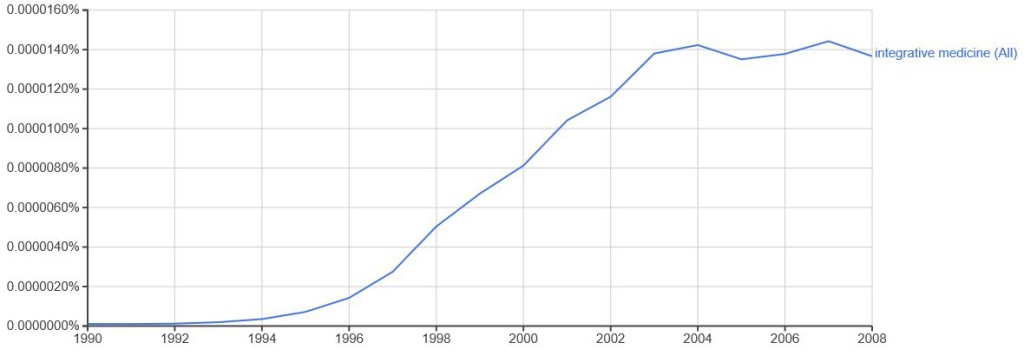
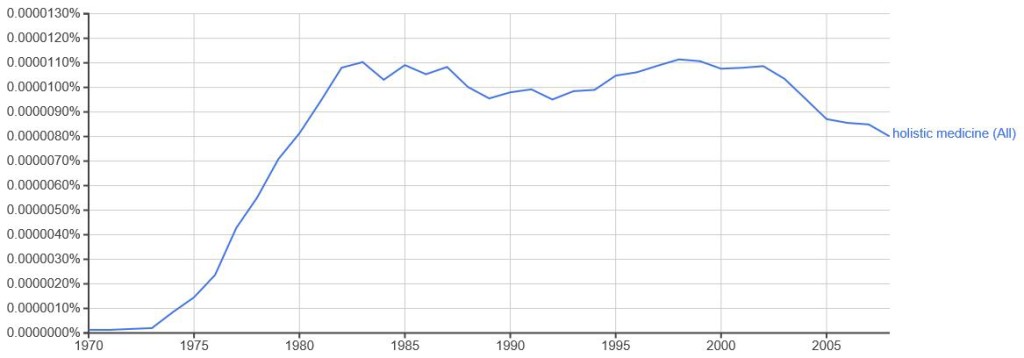
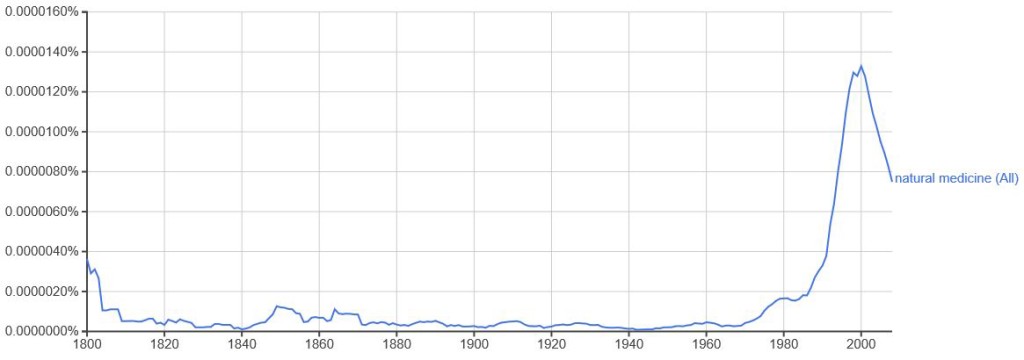
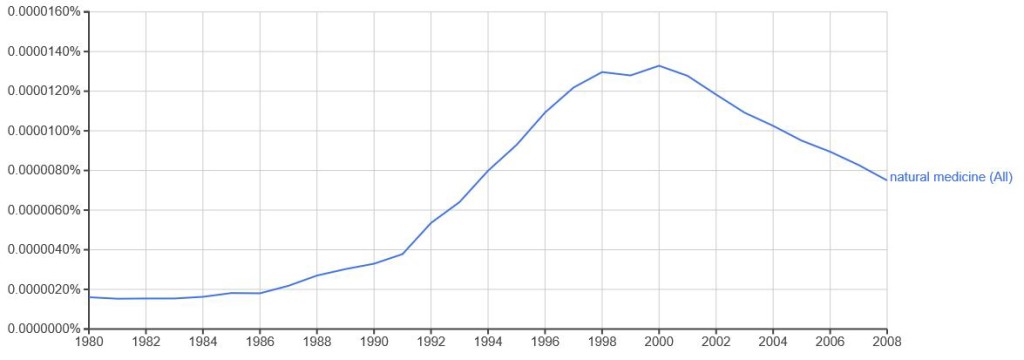
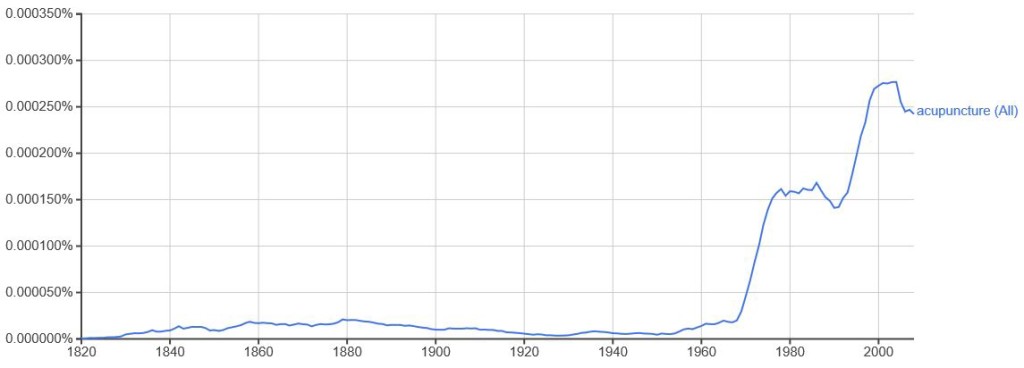
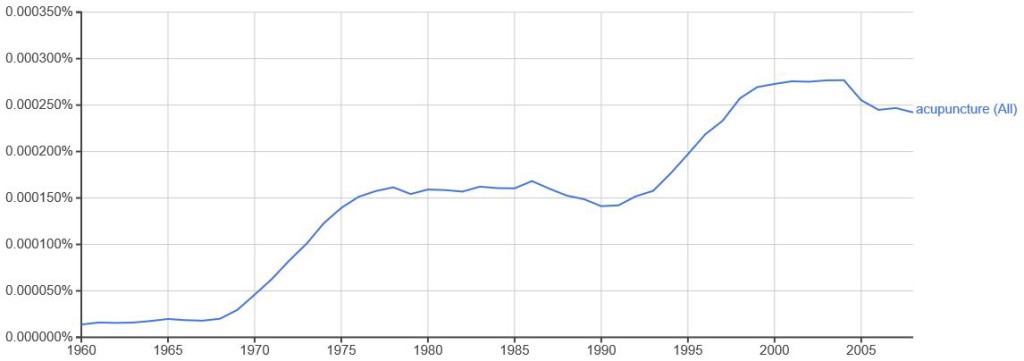
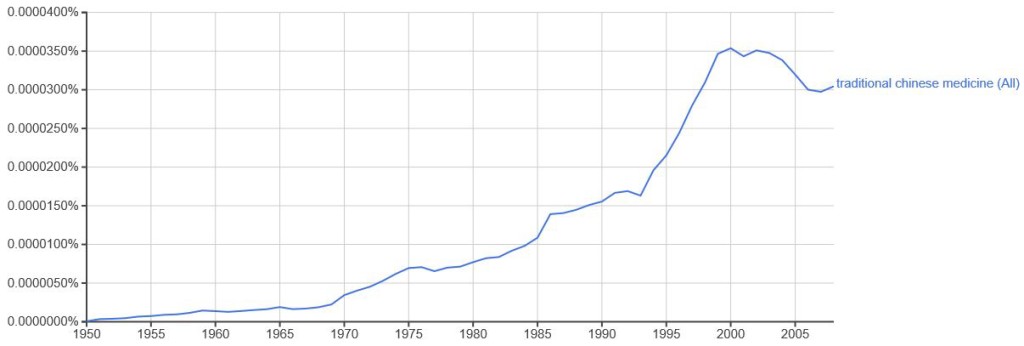
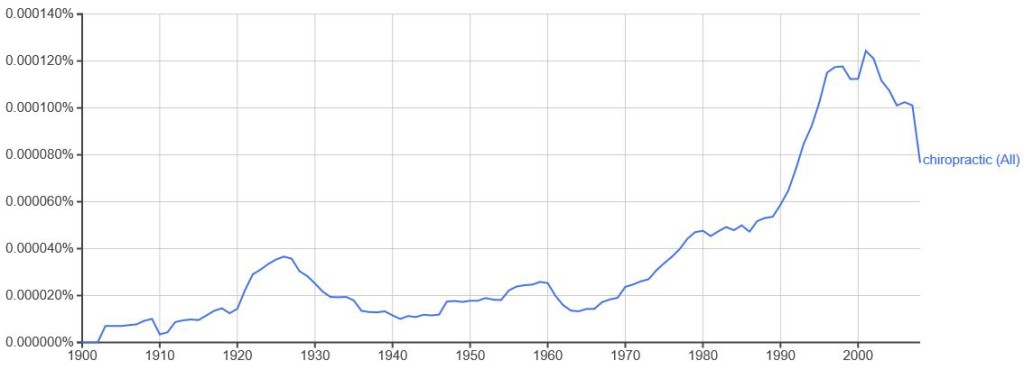
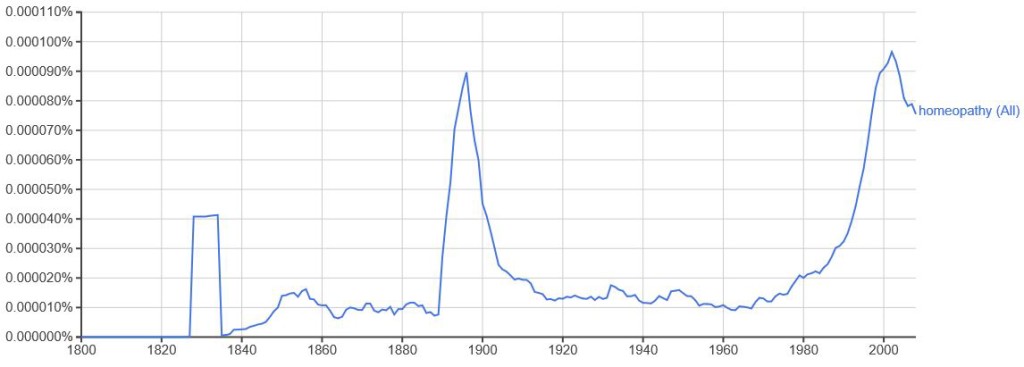
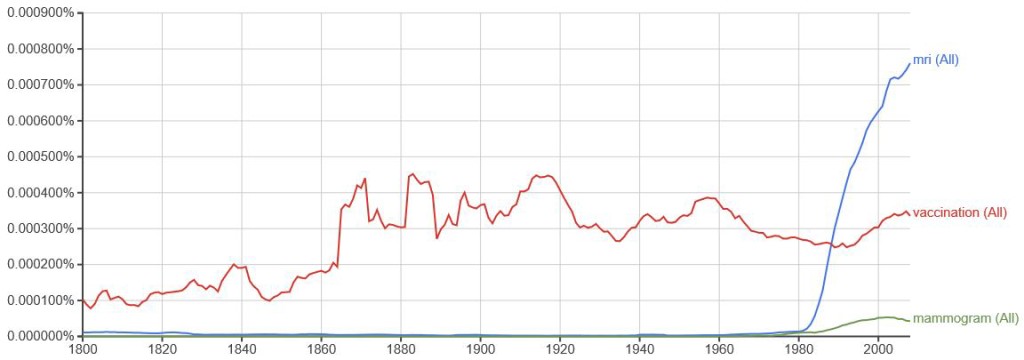









Sadly, the alties will just do what they do best, change the word-salad when it suits them.
Two words that have been ruined beyond proper use by association with fake medicine: ‘toxic’ and ‘holistic’. ‘Toxic’ and ‘toxin’ especially were meaningful terms applied to harmful substances, that seems to have been appropriated for pretty much anything, and frequently appear in vague idiot claims that someone’s body is ‘toxic’ because they have been exposing it to ‘toxins’ etc. My grandfather used to complain that the word ‘gay’ was no longer usable in its old niche because the modern meaning had usurped it, but at least being gay is something real that deserves a word for it!